Hunger Crimes
© Ignacio MarínCaracas, VENEZUELA
In Venezuela, the collapse of the economy and the subsequent food shortages has led to the appearance of a new type of crime: hunger crimes.
Out-Of-Control hyperinflation -which will reach 1,000,000% in 2018- and prices doubling every week is causing that even employed people with steady jobs can’t afford to buy the most basic items. During the last Survey of Living Conditions (ENCOVI), 89.4% of the surveyed declared that their household income is not enough to buy food, and 61% said they went to sleep hungry at nights. According to Cáritas, in July this year, a family will require 98 times the minimum wage to be able to afford its food necessities.
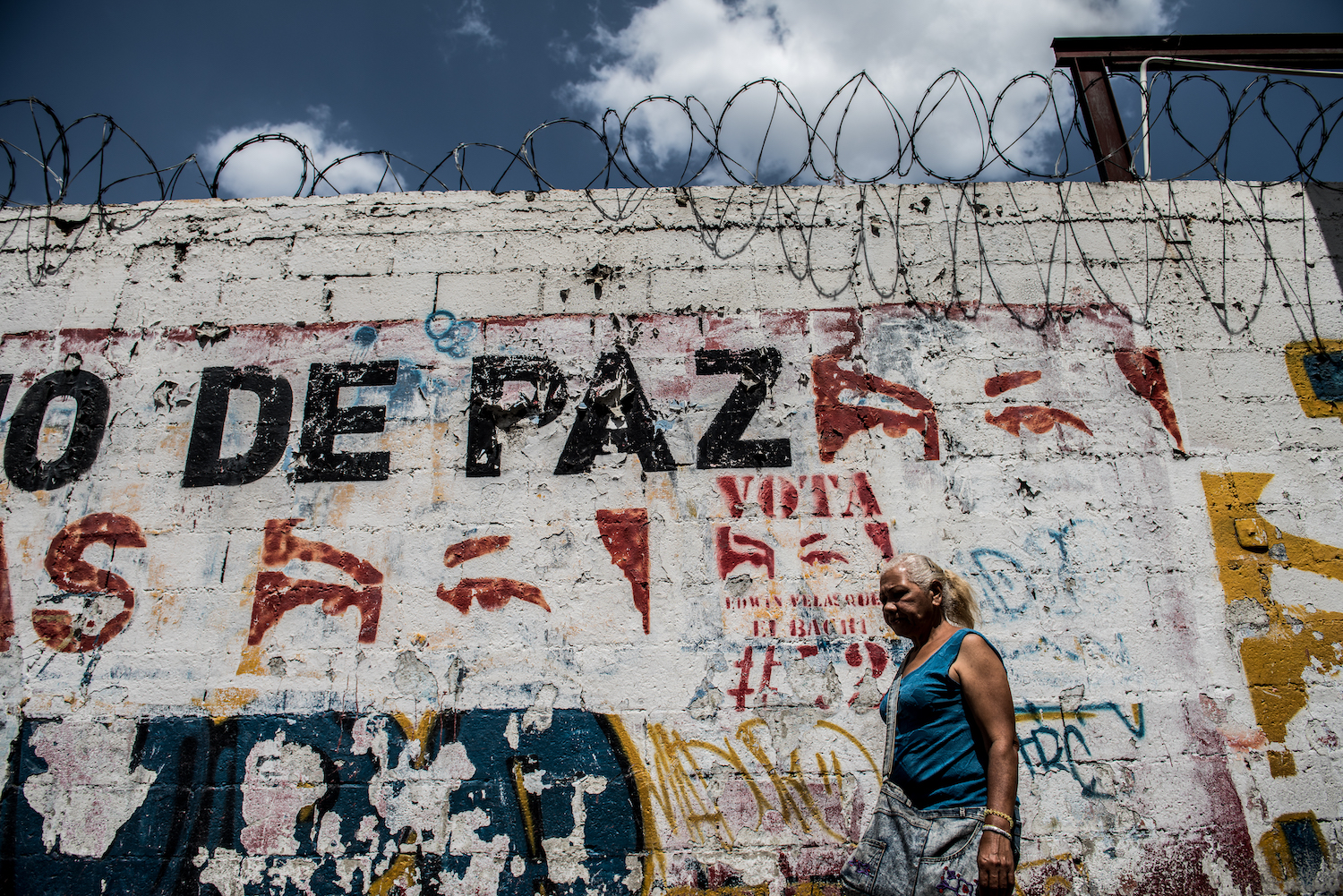
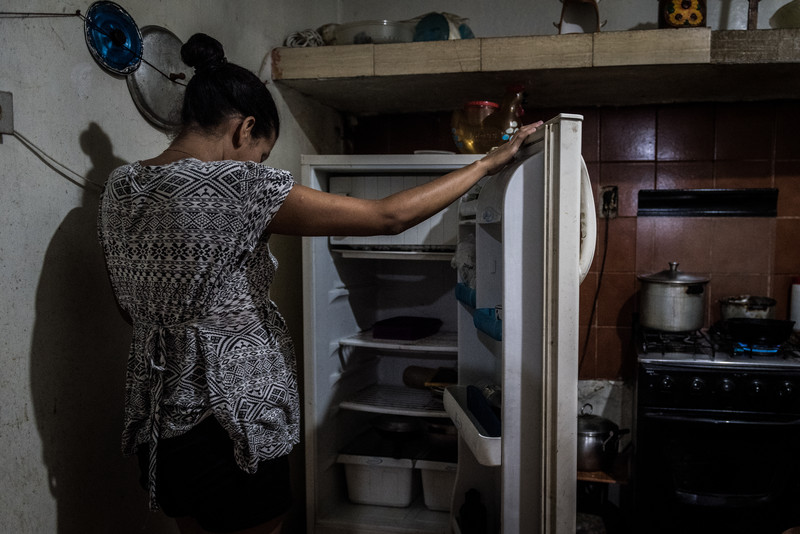
The anguish produced by the empty fridges and stomachs has unleashed a new wave of crimes that have hunger as a motive. As the nongovernmental organization Venezuelan Observatory of Violence (VOO) points out, food has become a major catalyst for crime. In a country in which impunity is rampant and where the money is worth less than the paper in which it is written, ordinary people have turned to crime. Fathers go out at night to steal motorcycles and teenagers join gangs to be able to buy some food. Crime and insecurity are on the rise, and robberies and kidnappings have become a major industry. The direct co
A woman stares at her empty fridge at her house in Petare. For many families, even the most basic items such as tomatoes or beans are out of reach: according to ENCOVI, 80% of homes in Venezuela are food insecure.
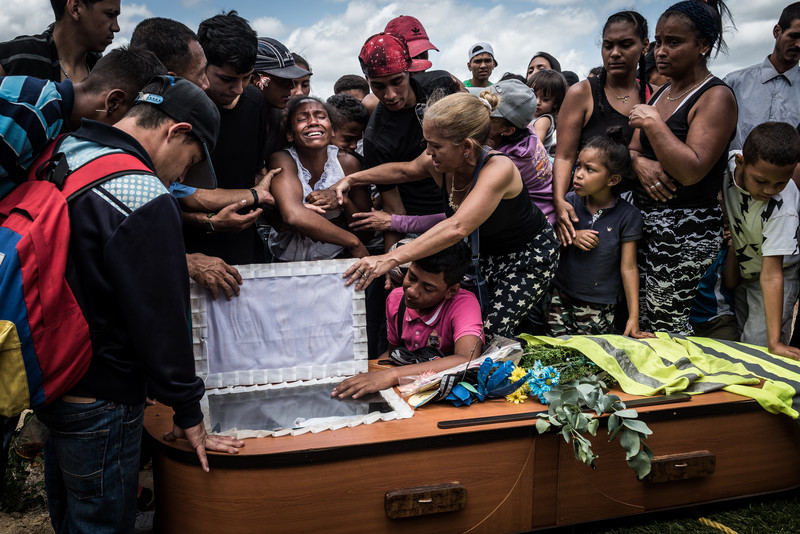
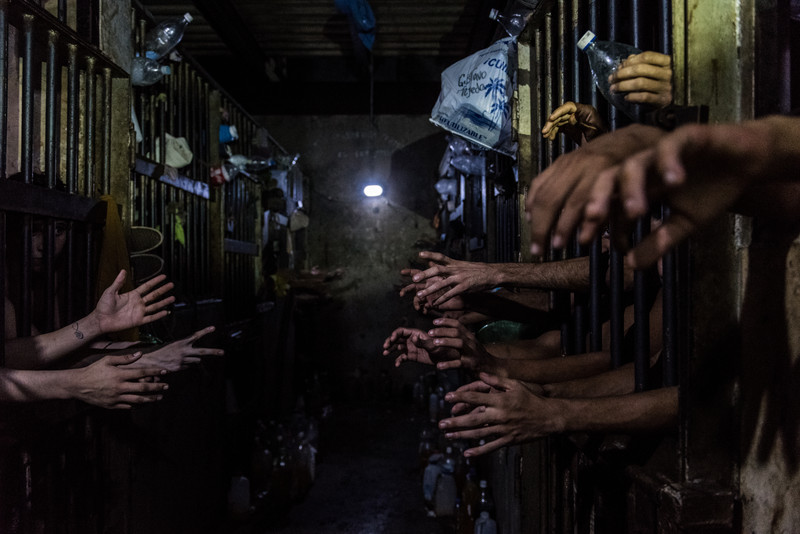

Roxana Gutierrez, 19 years old, looks after her son. While she and her husband Carlos, 20 years old, had steady jobs, it became harder for them to find food, which in turn pushed Carlos to begin stealing motorcycles. He is now serving a prison sentence, and she is pregnant with their second child.
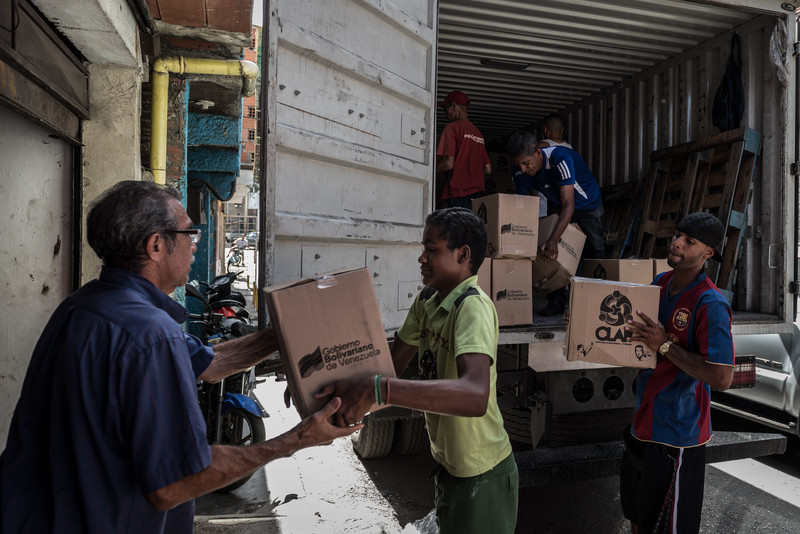
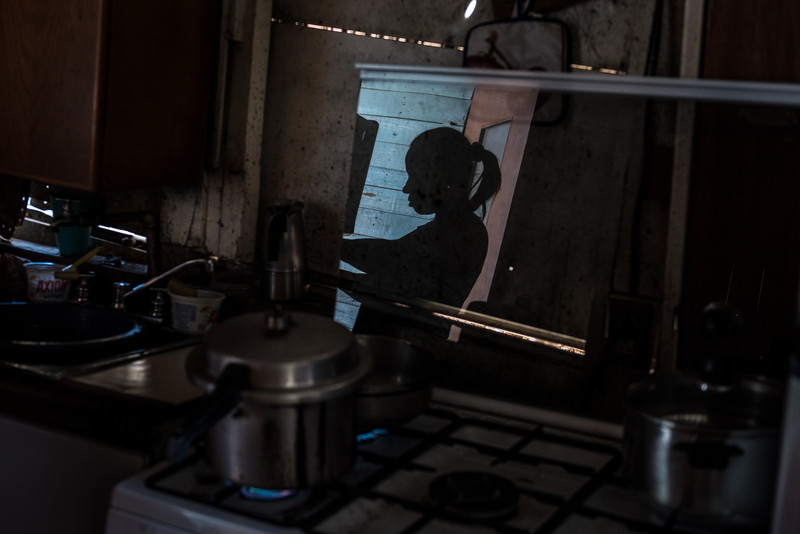
click to view the complete set of images in the archive
